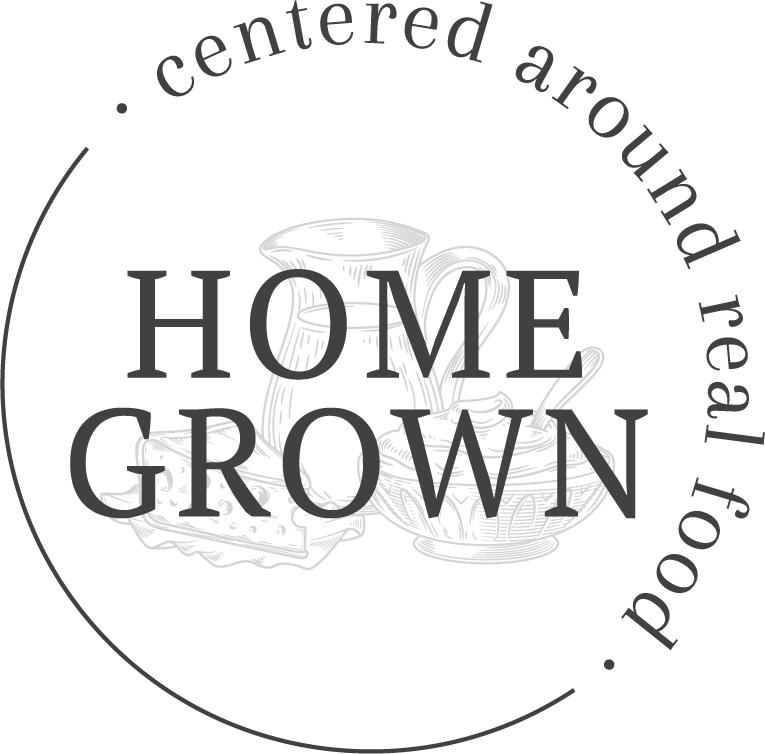Introducing: Homegrown Education
A little over a year ago I found myself searching for materials I could use to help teach our 3rd grader about food and nutrition. I googled, scoured Etsy, and even browsed through Instagram, hoping to find something out there that spoke to our complex food system and the whole foods our body needs to thrive. Unfortunately, every worksheet, textbook, and published curriculum I came across was based on the USDA MyPlate food guidelines, which didn’t align with our family’s food values. For starters, we didn’t adhere to the recommendation that fat-free dairy is best. I also understood there’s a stark difference in the nutritional value of fresh produce based on how it's farmed (conventionally or organically in rich soil). I knew the source of our meat, dairy, and eggs was also incredibly important and yet I couldn’t find any educational resources speaking to these truths.
So I created my own. For over a year I researched nutrition, wrote nearly 30 lessons, developed activities, hired designers, collaborated with a Holistic Nutritionist, and partnered with organizations and businesses who shared my belief in real food. I have been overwhelmed by the support and encouragement I’ve received throughout this journey and I truly believe the final product will prove to be an invaluable tool for families all across the U.S.
If you are a parent or educator looking for science-based nutrition education focusing on real food, and rich with resources and credible sourcing, Homegrown is for you.
Join me in pursuit of instilling a love of real food, cooking, and proper stewardship of health into the next generation.
About Homegrown:
How does Homegrown define Real Food?
With so much misinformation around which foods we should and shouldn’t eat, I wanted to nix the prescriptive overtones of traditional nutrition education and focus on one consistent definition of real food.
Real Food is:
Naturally Occurring
Nutrient-Dense
Unrefined
Not Denatured
Naturally occurring, meaning the food you eat can either be found, as in, in nature or has undergone a natural process (like fermentation) that doesn’t require the use of synthetic chemicals or nutrient-altering processing methods.
Nutrient-dense, meaning the food has been grown, harvested, preserved, or prepared in such a way that has enhanced or enabled optimum nutritional quality.
Unrefined, meaning no nutrient-containing part of the food has been removed or decreased.
Not denatured, meaning the proteins, enzymes, fats, vitamins, minerals, and healthy bacteria remain intact and active.
Who is it for?
The Homegrown Nutrition Workbook Level One is great for upper elementary and middle-school aged students. The activities can be tailored to a wide range of grade levels.
Whether your child is in public school, private school, or homeschooled, Homegrown can fit into any schedule.
Why is this important?
I believe teaching our children how to nourish themselves is one of the most important life skills they will ever acquire. A healthy understanding, relationship with, and respect for food is critical if we are to be good stewards of our health.
As the prevalence of chronic illness, autoimmune disorders, food allergies, cancer, and other worrisome ailments increase, it has become obvious that what we eat matters.
What we eat also has an incredible impact on our environment, economy, and the health of future generations.

